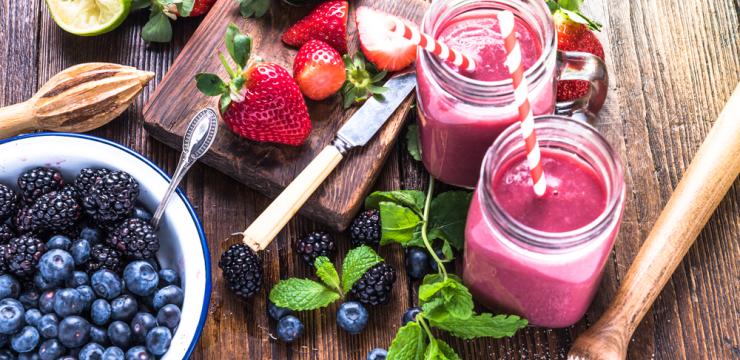
- The gist of this article
Fruit and vegetable smoothies are everywhere you look. Healthwise, they’re great, provided that they taste well and bring you rouphage and whatever vitamins and minerals that remain after the blending process. But, as far as oligomeric proanthocyanisins (OPCs) are concerned, could smoothies give you the ones you need?
Indeed, the bio-actives contained in the skins and pips of the fruits that end up in your smoothie may contain some OPCs and/or other “bioactives.” However, smoothie-lovers should not think that just because they contain OPCs, beta-carotene, chlorophyll, anthocyanidins and other active botanical compounds, smoothies will automatically bring the health benefits obtained with properly characterized extracts.
OPCs in foods
In theory, a varied and balanced daily diet containing large amounts of OPCs-rich foods could provide a daily quantity of 200 to 300 mg of OPCs. Although certain foods rich in OPCs (red wine, dark chocolate, cranberry juice, etc.) have been the subject of scientific enquities, no beneficial relationship has ever been clinically established between such foods and microvascular health. Although foods may contain OPCs, their quality and consistency can vary enormously. Hence, to our knowledge, there is no scientifically substantiated diet or modification of the normal diet that will produce the product specific health benefits obtained in the clinical tests performed with Masquelier’s OPCs.
Characterization of OPCs
Even if you followed an OPCs-rich diet by drinking smoothies and eating dark chocolate, it would almost certainly be compromised because you have no way of characterizing the different OPCs, which vary in their degree of condensation and the types of the units that make up the various oligomers of proanthocyanidins. As such, there will always be wide differences in the quality, levels and varieties of OPCs contained in the fruits and vegetables you eat one day, and those you eat the next day.
Thus dietary recommendations such as ‘a carrot and berry smoothie every day’, or ‘50cc of cranberry juice’, or ‘50 grams of dark chocolate’ become meaningless. In addition, most people would struggle to follow such a diet. After a while, smoothie-fatigue inevitably sets in. (Although not, probably, dark chocolate fatigue). And, of course, such a diet – even if it could be formulated and maintained over time in terms of quality and composition – would still require clinical trials to establish whether such a diet would deliver a beneficial effect in the dietary management of cardiovascular health.
Eat, drink and be happy with Masquelier’s OPCs.
In contrast, you know that every single batch of Masquelier’s OPCs has been rigorously and fully characterized using state-of-the-art tools and methods. It means that all the finished products containing Masquelier’s OPCs can be recognized by their DNA and highly individual footprint. You can be sure that you are benefiting from the very complex botanical compound and its unique biochemical composition.
So, by all means continue blending your smoothies and enjoying your dark chocolate and a glass of red wine. They won’t be doing you any harm and will probably be doing you some good. But don’t forget to keep supplementing them with Masquelier’s OPCs.






